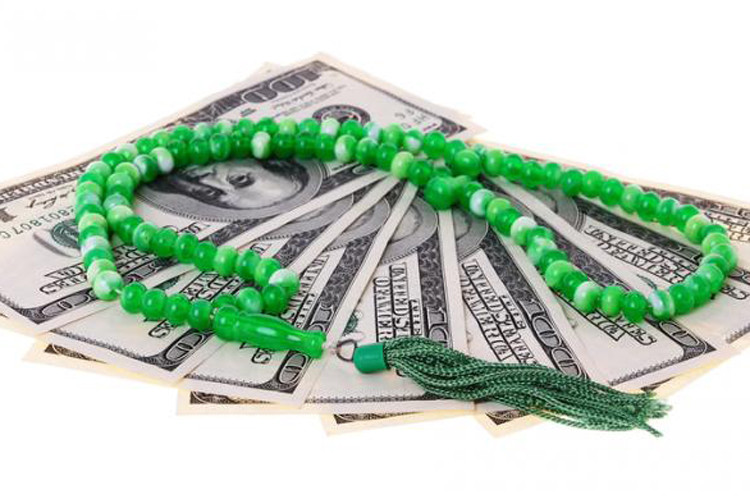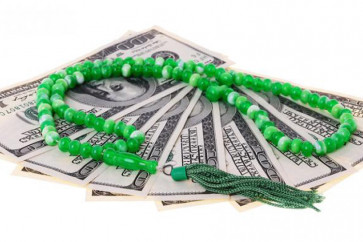Popular Reads
Top Results
Can't find what you're looking for?
View all search resultsPopular Reads
Top Results
Can't find what you're looking for?
View all search resultsWhy we need primary dealers in the sukuk market
The increasing variety of sukuk investors in Indonesia underscores the importance of primary dealers in the Islamic bond market.
Change text size
Gift Premium Articles
to Anyone
T
he sharia-compliant bond market in Southeast Asia’s largest economy is showing an encouraging development. Demand has been rising and nearly broke the pre-pandemic record of Rp 69.6 trillion (US$4.9 billion) booked in February 2020. The total outstanding has reached Rp 1.095 quadrillion to date, 3.6 times higher than five years ago, and accounted for 19.1 percent of the total government bonds. Meanwhile, the average daily sukuk transaction in the secondary market has more than doubled in three years to Rp 2.5 trillion.
It was foreseeable when a leading Indonesian bond fund manager said investors no longer got high premiums in the sukuk market since late-2019. Investors, in general, ask for the premium to compensate for the liquidity risk from investing in sukuk instead of conventional bonds. However, the average risk premium for sukuk, which is the yield spread between sukuk and conventional bonds, has been narrowing since 2020, and it is even negative for short tenors. The gap between the average sukuk yield gained from auctions and conventional bonds in the last 2years has narrowed to only 6 basis points (bps), far lower than 25 bps in 2016-2019.
What made the difference? One factor is the establishing of sukuk primary dealers through Finance Ministerial Regulation No. 213/2019, effective as of December 2019. The government has proven that the establishment of primary dealers in the conventional bond market is effective in increasing liquidity and deepening the market. The average daily trading has shown increasing trends in both annual amount and frequency, while the bid-ask spread yield has been decreasing, indicating a more efficient market. A similar effort in the Islamic bond market is expected to yield the same results.
The world’s first primary dealer was established in the United States in 1960 with a mandate to develop the primary and secondary government bond markets. The concept was then applied by many countries, such as Brazil, the United Kingdom, Singapore, France, India, etc. A survey by IMF’s Marco Arnone and George Iden in 2003 reported that 75 percent of the surveyed countries used the primary dealer model to issue sovereign debts. The survey also suggested that primary dealers could increase the range of government bonds in the primary market, and 87 percent of the total respondents recommended the primary dealer system.
Drawing a lesson from Indonesia’s conventional bond market, the concept of a primary dealer for Islamic bonds also applies equal rights and obligations, although in a smaller portion. Most of the primary dealers of sukuk also trade in conventional bonds; those dealers consist of 17 institutions and three Islamic banks. Aside from creating an optimal sukuk auction, the establishment of sukuk primary dealers will ease market and financing risks, as they are obliged to have a compulsory percentage of sukuk awarded. There is also positive sentiment for liquidity in the secondary market, as it creates a transparent price discovery mechanism through a two-way quote, as primary dealers must report their prices on every trading day. The higher competition will also lower the financing cost.
The increasing variety of sukuk investors in Indonesia underscores the importance of primary dealers in the Islamic bond market. Banks dominated the total outstanding for sukuk at Rp 344.4 trillion, or 44.3 percent, according to Debt Management Office data in July 2021. The mergers of state-owned sharia banks, coupled with their low penetration, will create better competition and more flexibility in product development in the banking sector. Bank Syariah Indonesia will soon become a top-tier lender, with core capital of more than Rp 30 trillion.
Furthermore, the commitment of the Haj Fund Management Agency (BPKH) to increasing its sukuk investment portion will also strengthen the investor base. About 60 percent of funds managed by the agency were in rupiah sukuk, at Rp 89.92 trillion in July, compared to Rp 35.78 trillion five years ago.


















